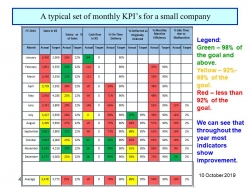Links to articles on the subject can be found at the end of the article.
What did Mr. Levi Eshkol, Prime Minister of Israel (1963–1969) say about the workweek?
It is said that when his advisors suggested to PM Levi Eshkol that the country should move to a five-day working week, he pondered and said: “Why start at four days? Let’s begin with one day, then two, three, and slowly work our way up to four and five”.
The aim of this article
Do you remember the days when we worked six days a week?
Has moving to five days had a bad effect on employers or employees?
Has efficiency decreased?
Have we been achieving less?
Do you know of a company that is contemplating going back to six-day workweek?
Even in companies that operate 24/7, the employees only work five days a week.
This article does not aim to promote a four-day workweek. It aims to present the benefits of a four-day workweek for employees and business firms. The article will examine what can be learnt from various situations and try to understand what can be done today, prior to moving to a four-day workweek.
Advantages of working four days per week
A five-day workweek has become the norm in Israel and people are now beginning to think of a four-day workweek.
Let us examine the economic advantages of working four days a week. An article was published in the Jerusalem Post newspaper in May 2020, regarding a four-day workweek. The article stated that 64% of business managers who worked a four-day workweek found that they experienced a rise in employees’ productivity. 77% of the employees attributed the rise to an increase in their quality of life.
Another article published 3 years later presented substantial benefits for moving to a four-day workweek. The article which included surveys, conducted before and after the pilot had started, presented the following conclusions of a U.K pilot from 2022.
Company’s benefits:
- Of the 61 companies that entered the six-month trail, 56 (92%) have extended the pilot program, including 18 (30%) who adopted the program permanently.
- The number of sick leave days taken during the trail fell by about two thirds compared to the previous year.
- 57% fewer staff members left the participating firms, compared with the same period a year earlier.
Employee’s benefits:
- 2,900 employees participated in the pilot
- 39% reported that they were less stressed
- 4% said they were sleeping better
- 54% said it was easier to balance work and home responsibilities
Pilot in Israel
The Israeli 4-day workweek movement lead a pilot this year at EXSITU.
An article about it was published in The Marker magazine. The article presents the pilot data. It can be found on the magazine web site.
I present here with the data that Exsitu published on its web site, (highly recommended).
Exsitu wrote:
“We recently completed a successful six-month pilot of shortening the work week in which the company's employees worked four days a week without compromising their wages or conditions . The results of the pilot were impressive: the employees reported a decrease in burnout, an increase in productivity and an improvement in their quality of life. At the same time, Exsitu enjoyed an increase in productivity and a significant increase in the company's revenues”.
I don’t suppose businessmen who read about these pilots will hurry to move to a four-day workweek tomorrow morning, but one thing can obviously be learnt from them and implemented immediately.
Happy employees produce more in less time.
Of course, one can always argue that Exsitu is a high-tech company and its high- tech employees have different genes, but they don’t. They are motivated by the same issues as every other employee in all other businesses. The idea that money is the only incentive that drives employees to increase productivity is a fundamental mistake. Furthermore, no pay incentive can match happy employees.
A couple of years ago I wrote an article regarding the benefits of investing in employees well-being. Unfortunately, in times of crisis, the first expense companies usually cut back is related to employees’ welfare, outdoor fun activities etc. That is a mistake, especially at times of hardship when the company needs its employees to invest more effort.
When I managed Osem-Nestle in Yokneam, we developed a culture of including employees in our brainstorming sessions, problem-solving processes and improvement teams. One day I was called to the packaging department by an employee who wanted to show me how the number of workers in his packaging line could be cut by half.
Have you ever come across a situation in which employees offer to cut the staff by half? A suggestion of that kind can only be made when employees feel important, their contribution to the business is valued and are engaged with the company’s goals. By the way, optimization proposals made by employees must never lead to employees’ dismissal, or you can forget about employees’ suggestions in the future. The savings benefits will occur when you do not replace workers that left for “natural” reasons such as education, childbirth, weddings, moving to live in another town, army recruitment etc.
How to engage employees?
When you think of your employees, look in the mirror and think of yourselves. What makes you get up happily in the morning, eager to go to work?
The most important factor for employees is to feel significant, one that makes a difference, is valued, and can value others.
A day at the office or on the production line, in which nothing significant happens, is a bad day at work. However, when one is appreciated, complemented for good ideas and feels worth listening to, the day becomes challenging and interesting.
Listen to your staff. Consult them and value their opinions and advice. Appreciate them. Thank them. Include your employees in meetings and problem-solving processes.
Every staff member sees the picture from a different angle. Every employee can contribute new thoughts, new information and innovative ideas.
When management listens to the employees it:
- Receives new information.
- The employees learn about the company’s challenges and the company’s goals.
- Employees’ motivation increases. They feel valuable. Their productivity rises and so is their commitment to the business.
There is too much work. Production cannot stop.
When employees are not included in improvement teams and brainstorming sessions because there is too much work on the production lines and the employees are needed by the machines, the staff members feel belittled, good for manual work but not for thinking. Preferring output over people cultivates a culture which encourages employees to think small because they feel themselves to be an unimportant cog in the system. The productivity of such workers will be much lower than that of the ones whose ideas count, are summoned for important meetings and asked to contribute their know-how.
Commitment to employees increases employees’ commitment
Dr. Michal Hemmo Lotem wrote in her book “Leadership 3.0” that it has been proven beyond all doubt, that companies whose employees are contented achieve better results and higher value to their stock. Professor Dan Ariely, an expert on behavioral economics, found that high employee engagement is directly correlated to an increase of 20% gross profit, as opposed to a decrease of about 33% in companies that presented low employee engagement. He also found a correlation between employees’ engagement and other business parameters including a company’s growth and share value.
Summary and recommendations
The idea of a four-day workweek is becoming more and more popular and it may become the new norm in ten years.
Companies that moved, mainly as part of a pilot, to a four-day workweek with no changes to employees’ wages or work conditions, experienced an increase in productivity and sales.
Contented employees strive for the company’s success. They are committed to the company’s goals.
The way to succeed is not only by moving to a four-day workweek, but also by listening to employees and valuing their input in a company’s challenges.
Take advice from your employees. Establish and include them in the company’s improvement teams.
Developing a culture of optimization proposals is complex and requires forward planning ahead, but it is worthwhile, and it pays back. Do not prefer to utilize employees’ time at their workstations. On the contrary. Include them in thought and planning processes as much as you can.
Links to articles on the subject
- Rewarding Employees and Increasing Productivity and Motivation: "Smiley" Face -"Frowny" Face
- Reward Employees for Proposing improvement Measures?
- How to Create and Measure Employee Motivation
- About Worker Motivation and Increased Production
- Why Everybody Wants to Be Appreciated but Are Slow to Appreciate
- Old Kibbutz Values Have Been Revived in Leading Global Companies
- Does Improving the Organizational Culture Improve Profits?
- How to generate commitment to perform
- How to Promote Engagement and Get Employees Invested in Company Goals












 My First Book: Manage! Best Value Practices for Effective Management
My First Book: Manage! Best Value Practices for Effective Management